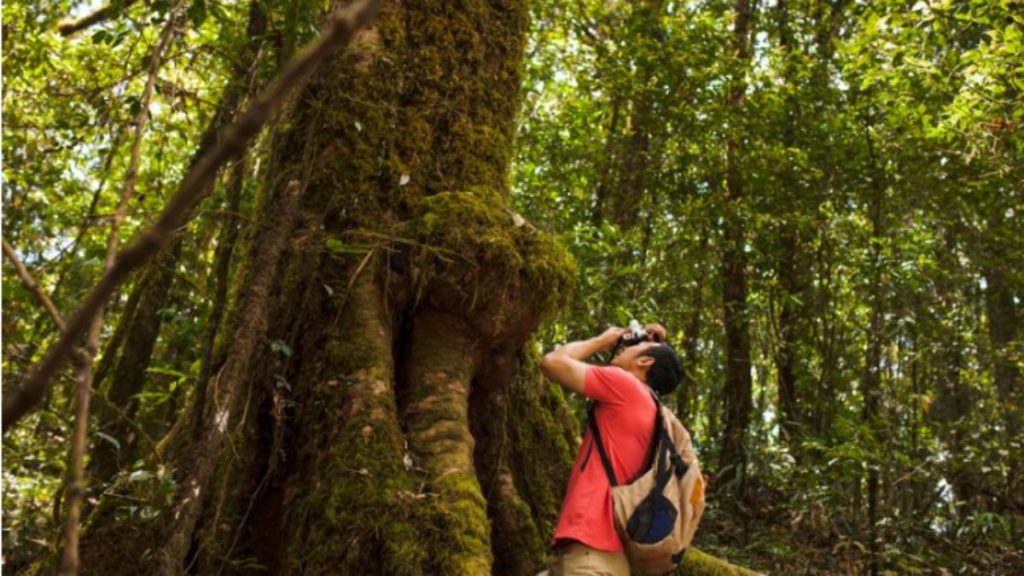Few experiences compare to the tranquility and beauty of a bosqu when it comes to discovering the beauties of the natural world. Our trip through these undiscovered natural treasures will be revealed in this piece, along with its secrets, ecological significance, and the simple joy they bestow upon those who venture into their presence.
What Exactly is a Bosque?
The word “bosque,” which translates from Spanish to “forest,” describes a special kind of riparian woodland that grows in dry and semi-arid areas along the banks of rivers and streams. These ecosystems are vital habitats for many different wildlife species and are renowned for their extraordinary biodiversity.
The Flora and Fauna of Bosques
A Haven for Avian Enthusiasts
A notable feature of bosqu is their abundant bird populations. These verdant ecosystems are a sanctuary for avian aficionados, serving as food and shelter for innumerable bird species. Bogs are a birdwatcher’s dream, home to species such as the graceful bald eagle and the endearing songbird.
Biodiversity Hotspots
It is astounding how diverse the ecosystem is in bosques. Numerous plant species can be found in these areas, ranging in height from majestic cottonwood trees to fragile wildflowers that cover the forest floor. Bosques are essential to the planet’s overall health because of their abundant biodiversity.
Ripple Effect
Bosques are essential to preserving the wellbeing of the ecosystems around them. Aquatic life benefits from the shade their dense canopy provides, which helps rivers’ water temperatures be more consistently warm. Moreover, the decomposing leaves of bosque trees add nutrients to the soil, which promotes the growth of a variety of plants.
The Cultural Significance of Bosques
Ancient Guardians
For many years, indigenous tribes have placed great cultural and spiritual value on bosques. These woods were revered, and rites and rituals frequently took place in them, underscoring their close ties to human history.
A Source of Inspiration
Additionally, bosques have served as a source of creative inspiration. The enthralling beauty of these forests has inspired countless poets, artists, and writers to produce classic pieces of art that perfectly express the spirit of nature.
The Threats to Bosques
Climate Change
Climate change is one of the biggest risks to bosques. The delicate balance of these ecosystems can be upset by rising temperatures and changing precipitation patterns, which may cause certain species to decline and invasive ones to spread.
Urbanization
One of the biggest challenges is the urbanization of bosque environments. Bosques may become more dispersed as cities grow, which would decrease their total size and usefulness. The animals that depend on these woodlands for survival may suffer greatly as a result.
Conservation Efforts
Fortunately, there is yet hope for bosques to survive. Governments, concerned citizens, and conservation organizations are putting in endless effort to preserve and rebuild these essential ecosystems. These natural riches are being protected by initiatives including habitat restoration, wildlife protection, and public awareness campaigns.
Conclusion
To sum up, bosqu are the beating hearts of the natural world—they are more than just trees. They are valuable resources that should be treasured and preserved because of their ecological significance, cultural relevance, and overall beauty. It’s critical that we appreciate the significance of these undiscovered treasures and cooperate to assure their survival for future generations as we continue to struggle with environmental issues.
FAQs (Frequently Asked Questions)
Why are bosques important for biodiversity?
Because they offer a home to a wide variety of plant and animal species and promote the general health of ecosystems, bosques are essential for biodiversity.
What is the biggest threat to bosqu today?
Climate change is the greatest threat to bosques because it affects their delicate biological equilibrium.
How can individuals contribute to bosque conservation?
By taking part in neighborhood projects, lowering their carbon footprint, and spreading awareness of the value of these ecosystems, individuals may assist bosque conservation.
Are bosqu only found in specific regions?
Although riparian forests akin to bosques are present worldwide, they are primarily found in dry and semi-arid locations.
Can I visit a bosque for recreational purposes?
Yes, many bosques offer recreational opportunities such as hiking, birdwatching, and picnicking, allowing people to connect with nature while appreciating their beauty.







